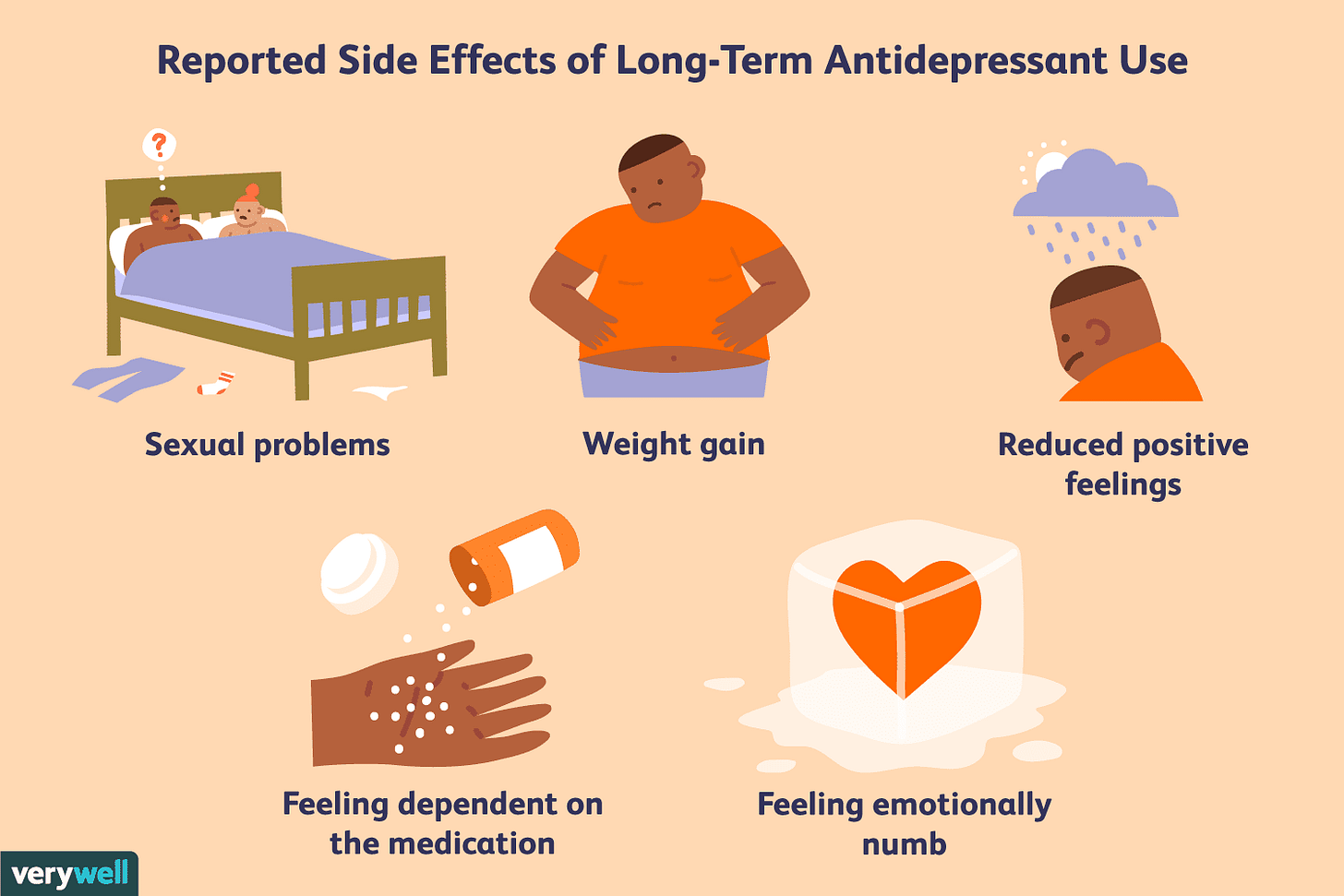Treating Depression by STOPPING Antidepressants
New guidance from NICE opens up a new way to tackle depression
Hello all!
Today I write from the beautiful beaches of Doha, Qatar just before I make my long awaited switch from hospital medicine to primary care. The sun has been refreshing especially after we at Pareto have had a non-stop run of courses.
On the theme of “refreshing the mind” I thought I’d focus on NICE’ new guidance on managing depression. Click the link for a summary of the new guidance.
You see, depression is rising and it’s pretty concerning.
Between 2020 to 2021 there has been a 7% rise in adults over the age of 16 who have been diagnosed with depression. Most of these have been started on antidepressants in the first instance as mental health services struggle to accommodate patients for cognitive behavioural therapy (CBT).
Antidepressants are hit and miss really. Whether they work or not can only really be deciphered after sustained use. Most people give up after a few weeks as it makes the symptoms of depression worse. Those who persevere either benefit from them or don’t.
Those who do benefit tend to stay on antidepressants on many months. There are some patients I’ve met that have been on medication like sertraline or citalopram for years. This has been the norm for a while until mental health practitioners realised some important facts…
You are what you think…
I guess if you’re reliant on a medication to help you through depression, you are in essence implicitly reinforcing your own clinical state. Patients can end up going into a viscous cycle and whilst it is difficult to prove (as the cause and effect isn’t exactly clear), there is a chance that sustained antidepressant use not only increases the side effect profile but also perpetuates depression after a while.
This is what I wanted to focus on.
So after much discussion the advice is now to help patients come off antidepressants. This isn’t easy and even the slightest adverse effect from withdrawal would traditionally act as a reason for patients to stay on the medication. Things are now different and it’s important to acknowledge there isn’t a one size fits all strategy.
I hope this gives a renewed importance to CBT. Someone who is clinically depressed is already struggling with their thoughts. They need to be taken out of their cycle of negativity and this can only occur with sustained psychological intervention.
The guidance also explains the importance of re-booking patients for follow up. It’s important to assess how patients are doing and for those working in primary care, these are exactly what the “re-booking/follow-up” slots are for!
In any case when consulting a patient please do consider some important questions:
how long has your patient been on an antidepressant for?
Have you spoken to them about coming their antidepressant?
Have they tried before and are there any services we can use to help them come off their antidepressant?
What are their main concerns? There are lots of horror stories about coming off antidepressants and patients will often reference these.
That’s all for this week. Until next time!
Pareto Pixel: Asthma
Check out our latest pixel on asthma. In just 4 minutes we summarise the main features of asthma, common arterial blood gases associated with asthma and management of severe/life threatening asthma.
Please like & share
Check us out on our various pages
Website: www.paretoeducation.co.uk
Instagram: www.instagram.com/pareto_ed
Twitter: www.twitter.com/pareto_ed
Youtube: https://bit.ly/3DPm23c
Email: paretopaeducation@gmail.com





